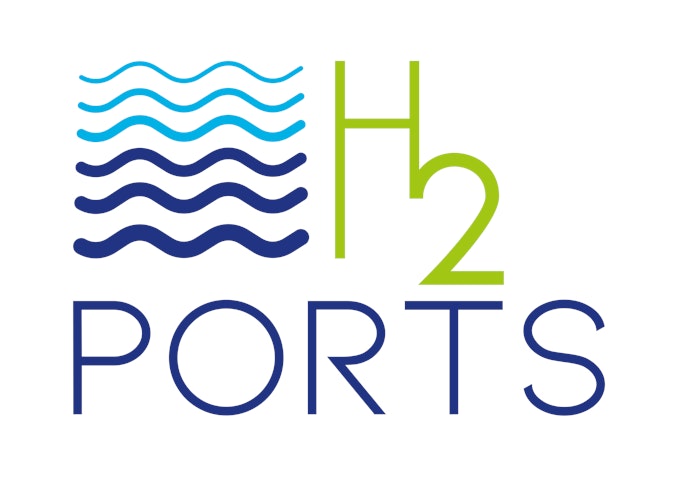Hydrogen as a driver for the decarbonisation of shipping
This report is part of Today in the Lab – Tomorrow in Energy?
Today in the Lab – Tomorrow in Energy? shines a spotlight on research projects under development in the Technology Collaboration Programmes (TCPs). Learn more about the initiative, read the launch commentary, or explore the TCPs.
Boost the transition of the European port industry towards a safe, low-carbon operating model
What is the aim of this project?
The H2Ports project aims to boost the transition of the European port industry towards a safe, low-carbon operating model. The project involves piloting, evaluating and demonstrating new fuel cell technologies designed to decarbonise port terminals while increasing their energy efficiency and safety. The pilots to be tested in this project will be the first to use hydrogen technology in port handling equipment in Europe.
How could this technology be explained to a high school student?
Hydrogen can be used as an energy source in a fuel cell. A fuel cell is an electrochemical device that uses hydrogen as a fuel to generate electricity through chemical reactions. The only resulting product from these reactions is water, so if the hydrogen fuel itself is produced from renewable energy sources (such as solar, wind or biomass), the fuel cell process does not produce waste, making it an attractive alternative for generating low-carbon electricity.
What is the value of this project for society?
- reduces the emission of pollutants and greenhouse gases from port operators
- increases hydrogen demand, which will reduce the cost of hydrogen
- accelerates development and deployment of clean technologies for transport.
At what stage of development is this project?
The project began in 2019 and is expected to run until the end of 2022. Three pilot initiatives will be tested in real operating conditions in the Port of Valencia in Spain. The project will also carry out feasibility studies on the development of a sustainable hydrogen supply chain in the port, co-ordinating all stakeholders involved, including customers, hydrogen producers and suppliers. At the end of 2020, partners will finalise the design and the assembly of the equipment to be tested in the pilots.
What government policies could bring this from the lab to the market?
- funding research, development and demonstration
- offering tax incentives that will improve the hydrogen economy
- implementing regulatory restrictions on the use of less environmentally respectful technological alternatives.

H2Ports project's logo
Video presentation
Partners and founders
Partners
- Fundacion Valenciaport
- Autoridad Portuaria de Valencia
- Ballard
- Centro Nacional del Hidrogeno
- MSC Teminal Valencia
- Hyster-Yale Group
- Grimaldi Group
- ATENA Future Technology
- Enagas.
Funders
Fuel Cells and Hydrogen 2 Joint Undertaking (Grant agreement 826339).
About the Technology Collaboration Programme on Hydrogen (Hydrogen TCP)
Established in 1977, the Hydrogen TCP works to accelerate hydrogen implementation and widespread utilisation in the areas of production, storage, distribution, power, heating, mobility and industry. Members benefit from the TCP’s global research outreach and robust industry participation.
Contact: marina.holgado@ieahydrogen.org; https://www.ieahia.org.